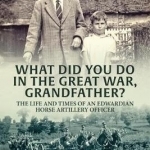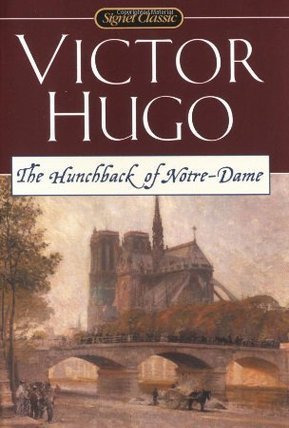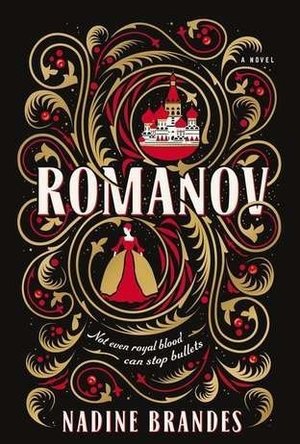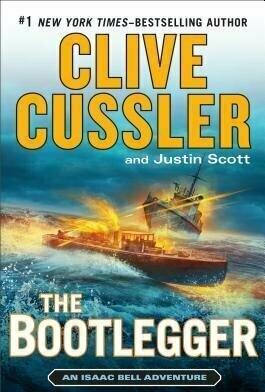
Power Remote Pro: PPT Clicker
Utilities and Productivity
App
#Support Internet Connection: No need in the same network. Power Remote Pro is a powerful...
The Bandersnatch (199 KP) rated The Hunchback of Notre-Dame in Books
Nov 7, 2019
Frollo orders Quasimodo to bring Esmeralda to him and after a lot of chaos where the guards under Phoebus capture Quasimodo, Gringoire is knocked out and only rescued from hanging when Esmeralda saves him with promise of marriage and Quasimodo flogged and placed on a pillory for several hours of public exposure. When Esmeralda is accused of attempted murder Quasimodo helps by giving her space in the cathedral of Notre Dame under law of sanctuary. Frollo finds out that the court of parliament has voted the removal of Esmeralda's right for sanctuary and orders her to be taken and killed. Clopin the head of the gypsies hears this and leads a rescue party to help Esmeralda. During the chaos Quasimodo mistakes who is wanting to help the Gypsy he loves and ends up in aiding in her arrest. Frollo after failing to win her love betrays Esmeralda and sends her to be hung. Frollo laughs as Esmeralda dies and is pushed from the top of the Cathedral by Quasimodo. Quasimodo dies of starvation after joining Esmeralda's body in the cemetery.
Victor Hugo began writing the book in 1829The novels original title was Notre Dame de Paris, it was largely to make his contemporaries more aware of the value of the Gothic architecture, Notre Dame Cathedral had been in disrepair at the time and along with other buildings which were neglected and often destroyed to be replaced by new buildings or defaced by replacement of parts of buildings in a newer style. During the summer of 1830 Gosselin demanded that Hugo complete the book by February 1831, Hugo -starting in September 1830- worked non stop on the book finishing it six months later. Several ballets, comics, TV show, theatre, music, musical theatre and films have been inspired by The Hunchback of Notre Dame most notably has been the 1996 Walt Disney animated movie of the same name.
I think that The Hunchback of Notre Dame is a very prolific book which promotes the fact that it doesn't matter what you look like on the outside, its how you deal with people and what is on the inside that counts. The books portrayal of the romantic era as an extreme through the architecture, passion and religion as well as the exploration of determinism, revolution and social strife adds to the ultimately magical make up of the book. I believe that most people would see themselves in the position of Quasimodo, Esmeralda and Phoebus rather than that of Frollo. I know I certainly wouldn't see myself otherwise.
Victor Marie Hugo was born on February 26th 1802 in Besançon. eastern Franche-Combe as the third son of Joseph Leopold Sigisbert Hugo (1774-1828) and Sophie Trebuchet (1772-1821). Victor was a French poet, novelist and dramatist of the romantic movement, he's also considered one of the greatest and best known French writers. Victors childhood was a period of national political turmoil with Napoleon being proclaimed Emperor two years after he was born and the Bourbon monarchy was restored before his 13th birthday. His parents held vastly different political and religious views which prompted a brief separation in 1803, during that time Hugo's mother dominated his education and upbringing. Hugos work reflected her devotion to king and faith. However during the events leading up to France's 1848 revolution, Hugos work changed to that of Republicanism and free thought. Hugo went on to married to his childhood sweetheart Adele Foucher in 1822 and they had five children.
Victor Hugo's works hold a vast collection of poetry, novels and music. His first Novel Han D'Islande was published in 1823 and he published five volumes of poetry between 1829 and 1840 which cemented his reputation as a great elagiac and lyric poet. Hugos first mature work of fiction was published in February 1829 by Charles Gosselin without his name attached, this would infuse with his later work Le Dernier Jour d'un Condamne (The last day of a Condemned man) and go on to not only influence other writers including Charles Dickens and Albert Camus, and be a precursor to Hugo's work Les Miserables published in 1862.
After three attempts Hugo was finally elected to Academie francaise in 1841and in 1845 King Louis-Phillipe elevated him to the peerage and in 1848 he was elected to the national assembly of the second republic. When Louis Napoleon the 3rd seized power in 1851 Hugo openly declared him a traitor to France then relocated to Brussels, Jersey (where he was thrown out of for supporting a paper criticising Queen Victoria) and ending up in guernsey where he remained an exile until 1870. after returning to France a hero in 1870 Hugo spent the rest of his life writing and just living and died from pneumonia on may 22nd 1885 at the age of 83. He was given a state funeral by degree of president Jules Grevy, more than two million people joined his funeral procession in Paris which went form the Arc Du Triomphe to the Pantheon where he was consequently buried, he shared a crypt with Alexandre Dumas and Emile Zola. Most French towns and cities have streets named after him.
Victor Hugo in my opinion is one of those naturally born creative souls who had felt compelled to both write and at least try to make the world a better place. He definitely attempted to do so from the positions he accumulated in his life time and despite this the three mistresses he had in his later years definitely shows that his love life left something to be desired.
And there you have it a book for all the ages, its definitely under the banner of AWESOME!!!.
Ivana A. | Diary of Difference (1171 KP) rated Romanov in Books
Oct 5, 2020
The history books say I died.
They don’t know the half of it.
Ever since I read Fawkes, I knew I loved Nadine’s writing, and when Romanov was announced, I couldn’t be happier. As I have spend my childhood and young adult life in the Balkans, whilst travelling across Europe, I have always admired Russia, and always enjoyed reading all the theories about the Romanov family.
As a child I would be told stories and fairy tales, I would watch the Disney adaptation of Anastasia, and as I was growing up, I would read history books and fiction on this very subject. When I got my hands on ‘’Romanov’’, I knew I would be up for an adventure, with lots of expectations, but what I never knew was that I would be blown away of how beautiful this book is!
This book is split into two main parts, before and after the Romanov’s execution, but it is also split into the first being the historical part, and the second being the fictional part. Both parts of the book are quite intense, and very different emotions come up to surface, but they are both very powerful throughout, and fitted together quite well.
In the first part, we are introduced to the Romanov family, and how they are kept as hostages by the Bolsheviks. It would’ve been much better if we had more details on the pre-hostage period, why the revolution began, why the king abducted the throne, who are the Bolsheviks and what they believed in. The book starts in the middle of this whole situation, and whilst I knew the beginning before, I am certain a lot of people wouldn’t have.
The history, as much accurate as it was, also had a personalized feeling that the author wanted to give. I have to admit, a lot of the details, especially around the family were quite accurate. The family did stick together and loved each other, they did have secrets and they did make friends with their captors. Anastasia’s brother did indeed had hemophilia and Rasputin was allegedly helping him. However, the author decided to put her personal feelings into the history as well. The king is presented as a wonderful leader that cares about the people. I understand that we see this story from Anastasia’s point of view, and as his daughter, she is supposed to see her father as the best figure in the world. But I still believe this part should be more objective, if not from Anastasia’s point of view, then at least by the king’s actions and dialogues. The other big element that bothered me was the portrayal of Rasputin. He is shown in this book as a family helper and a kind man, when in fact, he was far from that. In the history books, he is described as a madman, a creepy person, and the king was not happy of him coming in the house. The family’s secrecy and the queen’s silent domination over the king, together with Rasputin’s doings were the start of the revolution, and I believe that it one of the required truths that this books should have included, but didn’t. And that troubled me.
On top of this, is the Russian language used throughout this book. There were a lot of spelling errors, and misinterpretations. And whilst I can understand these words, many people can’t, and translation wasn’t provided in the book. Also, I really found this quote interesting, talking about the Russian culture, and how they don’t show emotions. Just a note – this is most of the time true, people won’t be nice to strangers, but actually, Russian people are quite friendly and emotional as well.
‘’We Russians weren’t required to share any amount of emotion we didn’t want to.’’
Apart from these few things that slightly bothered me, I really enjoyed this book. Anastasia is an amazing character, and through her we can see her love towards her family, her country, and even towards the people that wish her harm. We get to see her love, cry, be hurt, be afraid, forgive, and grow throughout the book, and her journey was magical.
‘’As I lay in the grass next to the spell that could rid me of heart pain, I realized that a part of forgiveness was accepting the things someone had done – and the pain that came with that – and moving on with love. Forgiveness was a personal battle that must always be fought in my heart.’’
I loved the beginning of the book the most. The setting was well-written, and I got the feel the same way as the Romanov family did. They tried to act as if everything was normal, when in fact, they were held captive, and moved out of their home. They weren’t allowed to go out in the garden often, and when they did have this opportunity, they enjoyed every single second of it. And they all had hope every single day. They kept smiling and stayed together.
There are number of scenes that will always stay close to my heart – the relationship between Zash and Anastasia (as unrealistic as it might be), always kept me on my toes, his desperation, and his guilt, and her ability to forgive and love regardless.
The brother’s illness, and his persistence through it. His motivation and his will to never give up. The love he holds for his family, and especially his sister Anastasia, and the toughness and not letting go. A few scenes were unrealistic with him, as I hardly believe anyone suffering from hemophilia can survive all those injuries mentioned in the book and the pools of blood, but above all – this character did achieve what he was meant to do – show hope where there is none.
A wonderful and magical tale, with a history behind it of a mysterious family, especially their end – this book brought tears on my eyes and made me think about the power of forgiveness and love. A true masterpiece.
Thank you to Nadine Brandes, for letting me be a part of her Ninja Team.
Phil Leader (619 KP) rated The Bootlegger in Books
Nov 11, 2019
Time has moved on for Bell; it is now the early 1920s prohibition is in force and the loss of lives during the First World War has hit the Van Dorn detective agency hard. Faced with routine lawbreaking to smuggle and sell alcohol on the East Coast, and with lucrative government contracts being lost to new federal agencies, the struggle against crime has never been harder. And when Bell has to take over the role of head of the agency he faces a tough job.
Meanwhile the recent war in Europe has spread communist revolutionaries across the world, trying to destablise governments and bring about the fall of capitalism, following the example of the Russian Revolution. One resourceful operative sees the possibilities of bootlegging to finance his activities against America, but his masters are not so keen on the idea of making vast amounts of money, regardless of the use it is to be put to. But his fatal mistake is attracting the attention of the Van Dorns, who still stick by their motto - We Never Give Up. Ever.
You pretty much get what you expect with this book, more of the same from the previous Isaac Bell books. Personally I enjoy them, the insight into American early 20th century history is always a fantastic backdrop. Scott's seeming obsession with train timetables is kept to a small section here regarding moving a cargo from one place to another. There is still the full selection of large engined transport - fast cars, fast planes and in this one fast boats. There are exciting chases and shootouts, plots and subplots, ruthless villains and gangsters aplenty and the real motives of the villain do not become clear until the final showdown.
It is a shame that we know the identity of the villain more or less right from the start rather than the Van Dorns having to piece the clues together to unmask him, as in the previous novels. Although in this case it would have been hard to explain the conflict between his communist aims and capitalist means of obtaining them, which is the real engine at the heart of the plot.
Unlike Columbo Bell is not sure who his man is for quite a way through the book until realisation dawns about who he must be looking for. But I felt that he suddenly went from not knowing the actual identity of the villain to seeing through all his subterfuge far too quickly. There didn't seem to be a Columbo 'Just one more thing' moment where the vital clue or clever insight threw everything wide open. But perhaps it was time for the story to cut to the chase - and it certainly does that to a satisfying (although possibly not great) finale.
Overall I enjoyed the book, the pace was good and the set pieces very well written. However it was never going to challenge the reader in any real way. But then it's an escapist adventure story, why should it?
Sophia (Bookwyrming Thoughts) (530 KP) rated Trial By Fire (Going Down in Flames, #3) in Books
Jan 23, 2020
It goes without saying that the <i>Going Down in Flames</i> series and I have had a rocky history I wasn't a fan of the <a title="Going Down in Flames review" href="http://www.bookwyrmingthoughts.com/arc-review-going-down-in-flames-by-chris-cannon"; target="_blank" rel="noopener">first book</a> (but I totally saw potential!) and I became a little more fond by the second book.
The latest installment in the series doesn't make too much of a blip aside from the fortunate fact the series does <em>not</em> get worse. The series is very slow paced and <i>Trial by Fire</i> doesn't get any faster, but there are other aspects of the book that are much more redeeming and there is definitely plenty of excitement going around for the dragon shifters at the Institute.
In the midst of trying to figure out her love life (which is about as sad as mine if not sadder), trying not to get killed/attacked by rebels, and trying to figure out her connection to Valmont (her knight), Brynn continues to attempt changes to the Directorate's values that have been around for hundreds of years. Bryn actually <em>starts</em> some of those changes in the second book, <a href="http://www.bookwyrmingthoughts.com/arc-review-bridges-burned-by-chris-cannon"; target="_blank" rel="noopener tag">Bridges Burned</a>, but further progress is definitely made in <i>Trial by Fire</i> as her peers slowly begin to support her including Jaxon himself.
Jaxon is the Draco Malfoy of <i>Going Down in Flames</i> I'm serious. This dude <em>worships</em> his father and just has a Draco air about him ever since the very beginning of the series (it does not help that he occasionally says, "MY FATHER WILL HEAR OF THIS."). But as the series progresses, Jaxon is beginning to shape himself into a memorable character he's certainly not a jerk as he was depicted in the first book. And his hate relationship with Bryn?
It's really gotten to the point where their jabs are hilarious and entertaining to the book overall, because Jaxon's feathers get ruffled <em>so</em> easily. Clint and Ivy are fantastic side characters who provide Bryn with an overwhelming amount of support and I just adore love how they continue to play major roles in the series (YOU CAN NOT KILL THEM, CHRIS CANNON). Valmont just adds to the whole, "Jaxon's feathers get ruffled so easily."
And Byrn? Well... Bryn's okay as the main character. Still worries about her love life a lot, but it's not overshadowing the plot anymore. And since <i>Trial by Fire</i> further proves the slow progression of the revolution in the series, I'm sure it'll be well worth the wait by the time the last book comes out.
<a href="https://bookwyrmingthoughts.com/blog-tour-trial-by-fire-by-chris-cannon-arc-review-and-giveaway/"; target="_blank">This review was originally posted on Bookwyrming Thoughts</a>

What Did You Do in the Great War, Grandfather?: The Life and Times of an Edwardian Horse Artillery Officer
Book
Part history, part social documentary, part love story, this is a grandson's search for what his...

Alvar Aalto: Architect
Richard Rogers and John Stewart
Book
Alvar Aalto remains Finland's greatest architect, retains his place among the Modern Masters of...

Building Telephony Systems with Opensips
Flavio E. Goncalves and Bogdan-Andrei Iancu
Book
Build high-speed and highly scalable telephony systems using OpenSIPS About This Book * Install and...

Drift Mania Championship
Games and Sports
App
With MILLIONS of users, Drift Mania is a MUST-HAVE for any car enthusiasts! Join the revolution and...




